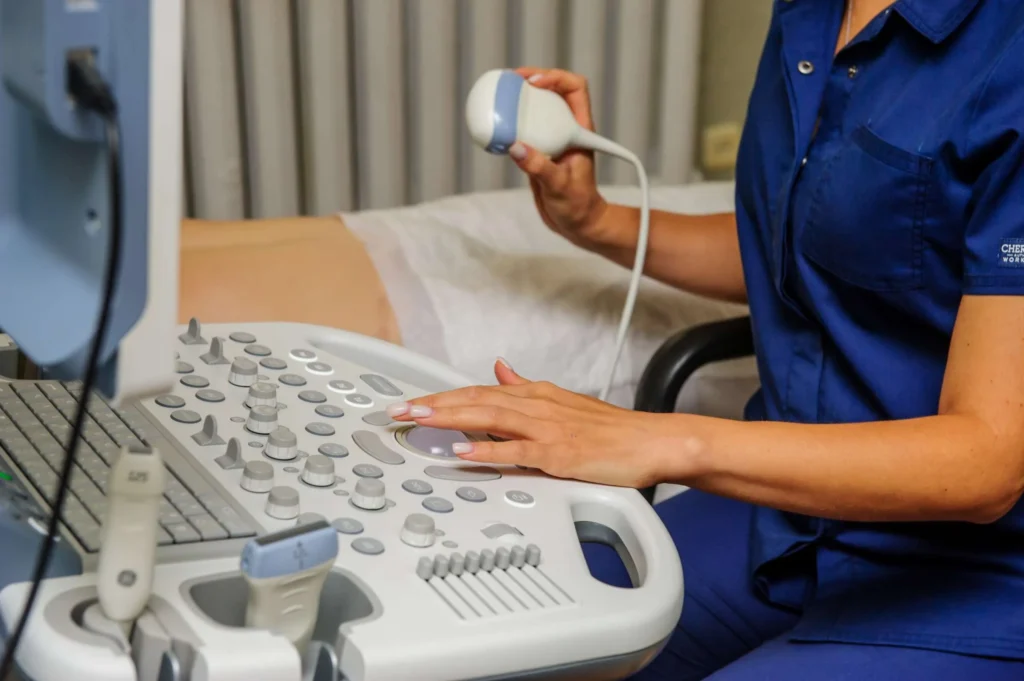Ultrasound technicians, also known as diagnostic medical sonographers, play a crucial role in healthcare, using specialized equipment to capture images inside the human body. These images help doctors diagnose and treat a variety of medical conditions, including heart diseases, tumors, and monitoring pregnancies. If you’re considering a career in healthcare, becoming an ultrasound tech is an excellent option with promising job growth and fulfilling work. This guide will walk you through the step-by-step process of how to become a ultrasound tech, including education requirements, certifications, skills, and more.
Why Pursue a Career as an Ultrasound Tech?
Before diving into the process of how to become a ultrasound tech, let’s explore why this career might be the right fit for you.
1. Job Stability and High Demand
Ultrasound techs are in high demand across healthcare facilities, including hospitals, outpatient clinics, and diagnostic labs. The demand for ultrasound technicians is expected to grow by 12% from 2021 to 2031, according to the U.S. Bureau of Labor Statistics. This rapid growth is much faster than the average for other occupations, ensuring excellent job prospects after you complete your training.
2. Competitive Salary
One of the main attractions of becoming an ultrasound tech is the competitive salary. The median annual wage for diagnostic medical sonographers is around $77,000, with top earners making more than $100,000. Salary varies depending on experience, specialization, and geographic location, but even entry-level positions offer a solid income compared to other healthcare professions that require similar levels of education.
3. Meaningful and Rewarding Work
Ultrasound technicians play a vital role in helping doctors diagnose medical conditions and track the health of unborn babies. Knowing that your work directly impacts patient care makes this career especially rewarding. Additionally, since many ultrasound techs work in outpatient clinics with regular business hours, you may find a better work-life balance compared to other healthcare roles like nursing or emergency medicine.
Read Alao: New Balance 2002R: A Comprehensive Guide
4. Specialization Opportunities
After becoming an ultrasound tech, you can choose to specialize in different areas such as obstetrics, vascular technology, or cardiac sonography. These specializations not only allow you to focus on specific areas of interest but also open doors to higher-paying jobs and advanced roles within the healthcare system.
Now that you understand the benefits of this profession, let’s get into how to become a ultrasound tech.

Step-by-Step Guide: How To Become a Ultrasound Tech
Step 1: Earn a High School Diploma or GED
Your journey to becoming an ultrasound technician begins with earning a high school diploma or GED. While in high school, focus on science and math courses like biology, physics, and chemistry. Taking health sciences or anatomy classes, if available, will also help lay the groundwork for your future studies.
Step 2: Choose an Ultrasound Technician Program
After completing high school, the next step is enrolling in an accredited ultrasound technician program. There are two primary educational paths:
- Associate Degree in Diagnostic Medical Sonography (DMS): This is the most common route and typically takes about two years to complete. Many community colleges and technical schools offer this program, which includes classroom instruction and clinical training.
- Bachelor’s Degree in Sonography: If you’re interested in more advanced career opportunities or leadership roles, a four-year bachelor’s degree in sonography may be a better choice. This program offers more in-depth study of diagnostic imaging, and some schools offer specializations within the field.
Make sure to select a program accredited by the Commission on Accreditation of Allied Health Education Programs (CAAHEP), as this is essential for certification later on.
Step 3: Complete Clinical Training
Regardless of the program you choose, clinical training is an essential part of becoming a ultrasound tech. Most programs require students to complete hands-on training in a real healthcare setting. During clinical rotations, you’ll work directly with patients under the supervision of experienced sonographers. This hands-on experience is vital for developing your skills and preparing you for the workforce.
You’ll gain practical experience with:
- Operating ultrasound equipment.
- Adjusting and optimizing images for diagnostic purposes.
- Positioning patients correctly for the best imaging results.
- Working with healthcare teams to assist in diagnosis and patient care.
Step 4: Obtain Certification
Once you’ve completed your educational program and clinical training, the next step in how to become a ultrasound tech is obtaining certification. Although not all states require ultrasound techs to be certified, most employers prefer to hire those who are. Certification also demonstrates your competence and expertise in the field, which can lead to better job opportunities and higher salaries.
The primary certification body for ultrasound technicians is the American Registry for Diagnostic Medical Sonography (ARDMS). To earn ARDMS certification, you’ll need to pass two exams:
- Sonography Principles and Instrumentation (SPI) Exam: This tests your knowledge of ultrasound physics and equipment operation.
- Specialty Exam: This tests your skills in a specific area, such as abdominal, vascular, or obstetric sonography.
Certification is a critical milestone in how to become a ultrasound tech because it validates your skills and knowledge, making you a competitive candidate in the job market.
Step 5: Check State Licensing Requirements
In addition to certification, some states have licensing requirements for ultrasound technicians. These requirements vary by state, so it’s important to research the specific requirements in the area where you plan to work. In many cases, holding ARDMS certification will meet state licensing requirements, but be sure to verify this with your state’s medical board.
Step 6: Pursue Specializations (Optional)
After you’ve completed the basic steps of becoming an ultrasound tech, you might consider specializing in a particular area of sonography. Specializations not only offer opportunities for career advancement but also tend to come with higher salaries. Some of the most popular specializations include:
- Obstetric and Gynecologic Sonography: Focuses on imaging the female reproductive system and monitoring pregnancies.
- Cardiac Sonography: Involves imaging the heart and blood vessels to diagnose cardiovascular conditions.
- Vascular Sonography: Focuses on the circulatory system, including veins and arteries.
- Musculoskeletal Sonography: Involves imaging muscles, tendons, and ligaments to diagnose sports injuries and other conditions.
To specialize, you may need additional certification through ARDMS or another recognized organization.
Essential Skills for a Successful Ultrasound Tech
Being an ultrasound tech requires more than just technical knowledge. You’ll need to develop a variety of soft and hard skills to succeed in this role.
1. Attention to Detail
Capturing clear, accurate images is crucial for proper diagnosis, and even the smallest mistake can lead to incorrect medical conclusions. You’ll need a sharp eye and attention to detail to ensure that every image is perfect.
Read Also: New Balance 530: The Classic Sneaker for Comfort and Style
2. Communication Skills
Ultrasound technicians work closely with both patients and healthcare professionals. You’ll need to explain procedures to patients, ensure they’re comfortable, and relay your findings to doctors. Strong communication skills are essential in this collaborative environment.
3. Technical Proficiency
Ultrasound equipment is highly specialized, so you’ll need to be comfortable operating complex machinery. In addition, understanding how to adjust the settings on the equipment for different patients and imaging needs is a vital part of your job.
4. Compassion and Empathy
As an ultrasound tech, you’ll interact with patients who may be anxious or in pain. Displaying compassion and empathy can help put patients at ease, making the imaging process more comfortable for them and easier for you.
5. Physical Stamina
Ultrasound techs often work on their feet for long hours, and positioning patients or equipment can require physical exertion. You’ll need good physical stamina to handle the physical demands of the job.

Career Outlook and Opportunities for Ultrasound Techs
The field of diagnostic medical sonography offers promising job prospects. As the population ages and healthcare technology advances, the demand for diagnostic imaging services will continue to rise. Ultrasound techs are essential in providing these services, particularly in non-invasive procedures like sonography.
Salary Expectations
As mentioned earlier, the average salary for ultrasound technicians is around $77,000 per year, but this figure can vary based on your specialization, experience, and location. For example, ultrasound techs working in metropolitan areas or those with specialized certifications tend to earn higher salaries.
Job Settings
Ultrasound technicians can work in various healthcare settings, including:
- Hospitals
- Diagnostic imaging centers
- Outpatient care centers
- Physicians’ offices
- Mobile imaging services
Continuing Education and Career Growth
Ultrasound technology is constantly evolving, and continuing education is important to stay current in the field. Many ultrasound techs pursue additional certifications to expand their skill set, which can lead to promotions, higher salaries, and more specialized roles.
How To Become a Ultrasound Tech
Conclusion
Becoming an ultrasound tech is a fulfilling and rewarding career path with strong job prospects, competitive salaries, and numerous opportunities for specialization. By following the steps outlined in this guide—earning a high school diploma, completing an accredited ultrasound program, gaining hands-on clinical experience, and obtaining certification—you can embark on a successful career as an ultrasound technician. Whether you’re passionate about helping others, enjoy working with cutting-edge technology, or are looking for a stable, well-paying job in healthcare, becoming an ultrasound tech might be the perfect fit for you.



